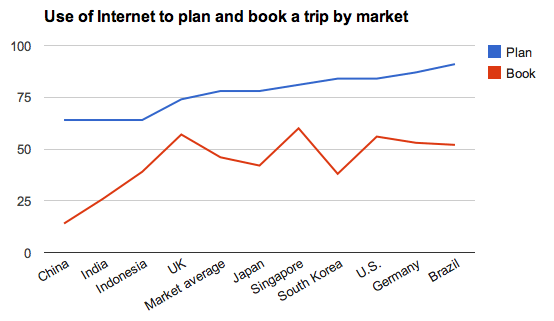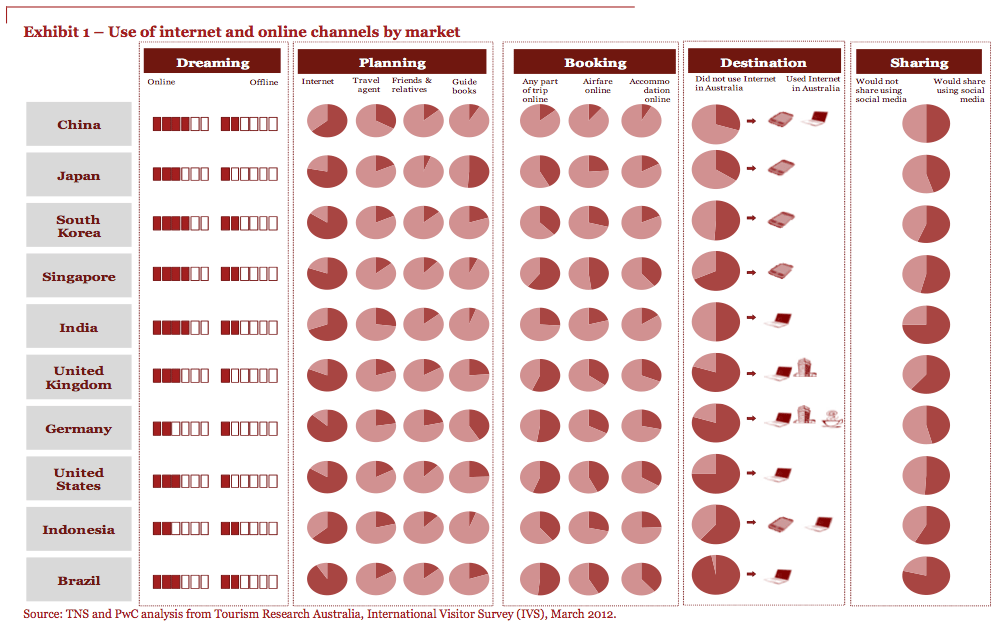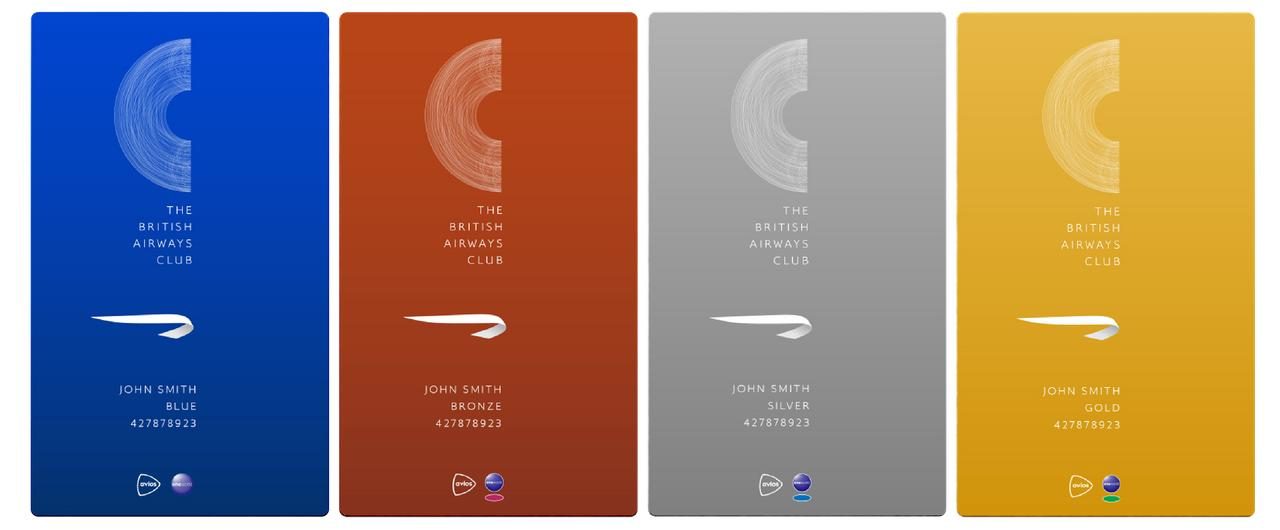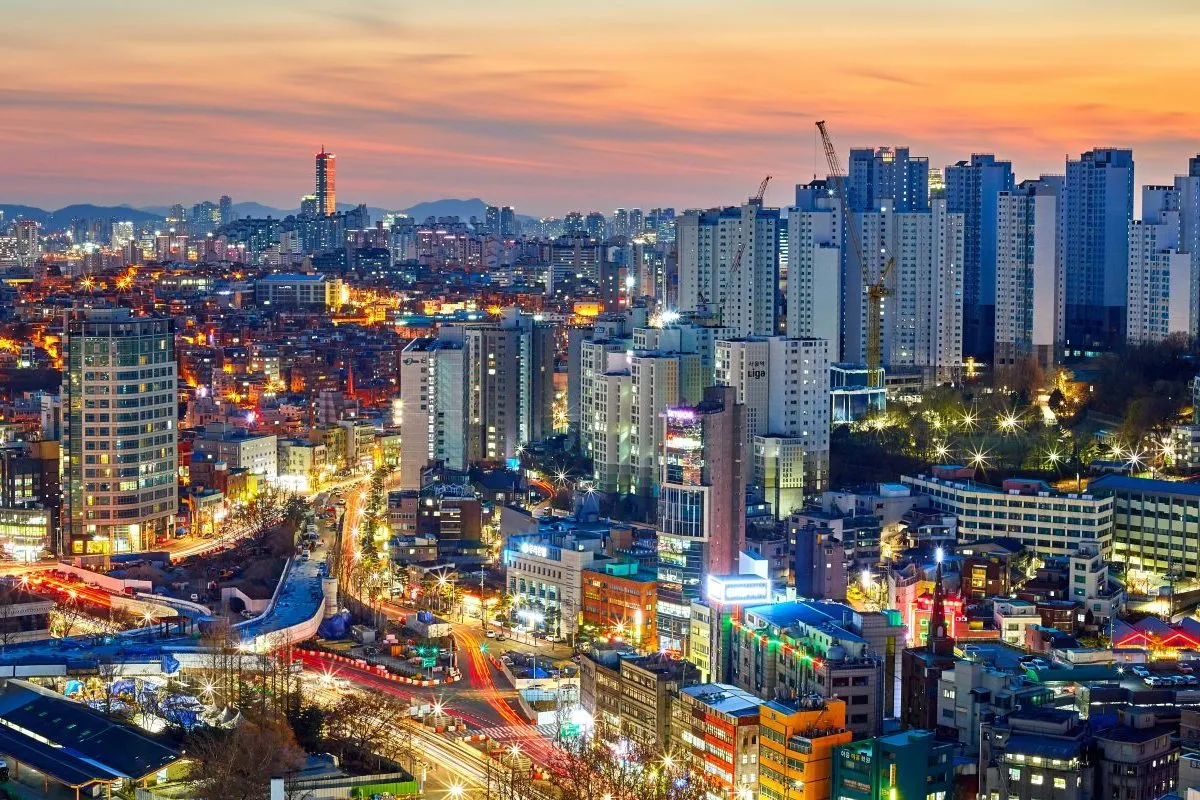The online planning and booking habits of ten different tourist groups
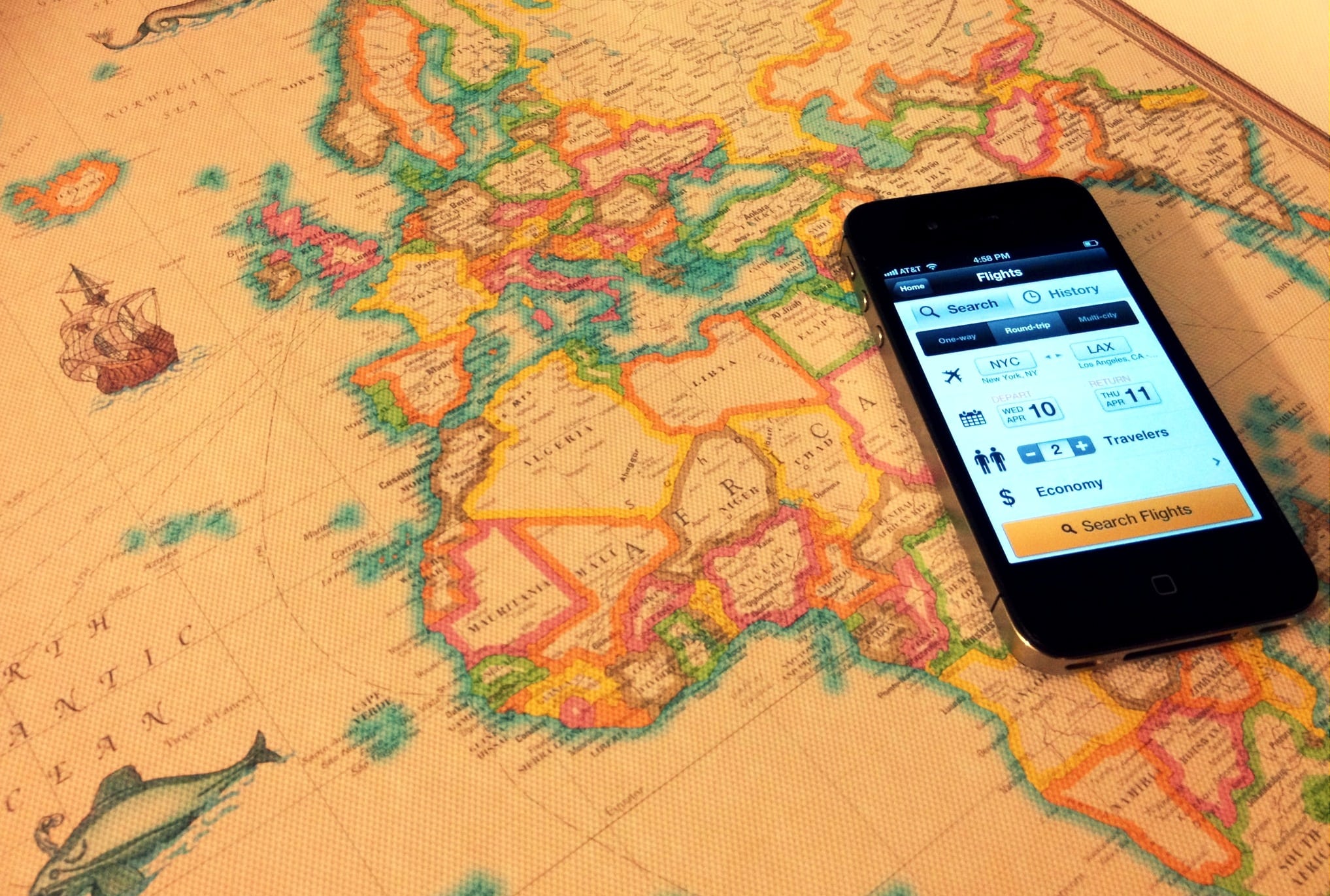
Skift Take
Internet has undoubtedly changed the way the world travels, but there are many travelers that are still not booking online whether it be due to structural barriers, cultural preferences, or a lack of resources.
A recent report by Tourism Australia researched what percentage of travelers from ten countries planned and booked their trips to Australia online, in the year ending March 2012. Brazilian travelers were the most likely to plan travel online (91 percent); Chinese were the least (64 percent). Singaporeans were the most likely to book online (64 percent), Chinese were again the least (14 percent).
More travelers relied on the Internet more than travel agents, friends and family, and guidebooks for the planning phase of their trip; and all travelers were more likely to research than book online.
The fascinating data; however, is in the size of the gap between those that plan travel online and those that actually book. Distance from the destination, online resources, government requirements, and cultural factors all play a part in the decision-making process that takes travelers from comparing flights to clicking purchase.
The gap between booking and planning online is the smallest in the UK, Singapore, and the U.S. These, plus Germany, are also destinations where Internet use has plateaued in recent years in comparison to the still rapidly growing number of travelers turning to the Internet in China, Japan, and South Korea. The stagnation could be caused by market saturation or a need for innovation.
The greatest gap between those planning and actually booking online is in China. In the year ending March 2012, 64 percent of Chinese travelers researched and planned online, but only 14 percent completed a booking. This gap reflects structural and political factors, including a tightly controlled market and lack of online payment systems, which keep Chinese travelers from booking online.
This week we've also looked at tourists' use of Internet in a destination (hint: smartphones and laptops) and how they share travel experiences after a trip (one word: Facebook). The below chart demonstrates travelers use the Internet during all five stages of travel:
